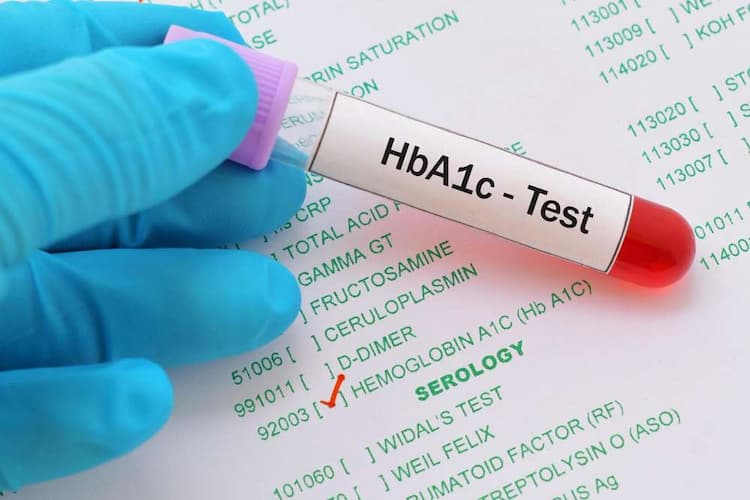Is Diabetes Hereditary? How Your Genes Can Play a Role

Medically Reviewed By
Dr. Ragiinii Sharma
Written By Kirti Saxena
on Aug 23, 2023
Last Edit Made By Kirti Saxena
on Mar 18, 2024

We inherit several characteristics from our parents, such as the color of our skin, eyes, and general appearance. However, we may also inherit obesity, diabetes, and hypertension. Diabetes is one of the most common diseases that may run in families.
Diabetes is a chronic disease when blood sugar levels rise, affecting millions worldwide. While lifestyle factors such as diet and physical activity play a crucial role in its development, genetics also significantly increase the susceptibility to the disease. In this article, we will discuss the hereditary nature of diabetes and how genetic factors can influence the risk of developing Type 1 and Type 2 diabetes.
Role of Genetics in Diabetes
Genetics plays a significant role in developing diabetes, especially in Type 1 and Type 2 diabetes. Here's how genetics influences these two types of diabetes:
Type 1 Diabetes
Type 1 diabetes is an autoimmune condition in which the immune system mistakenly attacks and destroys the insulin-producing cells in the pancreas. Research has shown that people with certain genetic markers are more predisposed to developing Type 1 diabetes. These genetic markers are often associated with the immune system and the regulation of immune responses. If a person has a close family member with type 1 diabetes, there is a high risk of developing the disease.
However, genetics is just one piece of the puzzle. Environmental factors, such as viral infections, early childhood diet, and other external triggers, are also believed to contribute to developing Type 1 diabetes, especially in genetically predisposed people. The interplay between genetics and the environment is complex and continues to be an active research area.
Genes responsible for Type 1 diabetes
There isn't a single gene responsible for Type 1 diabetes, but several genetic variants have been identified that are associated with an increased susceptibility to the condition. Here are some of the genes that have been linked to Type 1 diabetes:
- HLA Genes
- INS Gene
- CTLA4
- PTPN22
- IL2RA (CD25)
- IFIH1
- ERBB3
- SH2B3
Risk factors of Type 1 Diabetes
Several risk factors can increase the risk of developing the condition. These risk factors include:
- Autoimmune disorders, such as Hashimoto's thyroiditis or celiac disease
- Commonly diagnosed in children and young adults
- Viral Infections
- Seasonal Variation
- Family history
Type 2 Diabetes
Type 2 diabetes is the most common type of diabetes. Nearly 6.28% of the world's population is affected by Type 2 diabetes mellitus. If you have a family history of Type 2 diabetes, your risk of developing the condition is higher compared to people without a family history. Multiple genes have been identified that can contribute to this increased risk. The interplay between genetics and lifestyle factors is complex. For instance, genetic variants can affect how your body processes glucose, insulin, and fats, making you more susceptible to insulin resistance and other metabolic issues central to Type 2 diabetes.
Risk factors for Type 2 Diabetes
- Obesity
- People aged above 45
- High blood pressure
- Cholesterol level
- Depression
- Cardiac diseases
- Sedentary lifestyle
Genes Responsible for Type 2 Diabetes
Type 2 diabetes is a complex condition influenced by multiple genetic factors. While no single gene is solely responsible for causing Type 2 diabetes, several genetic variants have been identified that contribute to an increased risk of developing the condition. Here are some of the genes that have been associated with an increased risk of Type 2 diabetes:
- TCF7L2
- PPARG
- KCNJ11
- HNF1A (MODY3)
- HNF4A (MODY1)
- CAPN10
- IRS1
- PPARGC1A
- CDKAL1
- SLC30A8
Gestational diabetes
Gestational diabetes is a type of diabetes that occurs during pregnancy, specifically affecting how the body handles glucose (sugar). While the exact causes of gestational diabetes are not specific, genetics can increase the risk of developing this condition.
If you have a family history of diabetes (particularly Type 2 diabetes), you may be at a higher risk for gestational diabetes. Certain genetic factors that influence how the body processes glucose and insulin can contribute to the development of gestational diabetes. Additionally, if you have a personal history of gestational diabetes during a previous pregnancy, your risk of developing it again in subsequent pregnancies is increased.
Other factors, such as hormonal changes during pregnancy, weight gain, and lifestyle factors, also play a significant role. Maintaining a healthy lifestyle, including a balanced diet and regular physical activity, can help reduce the risk of developing gestational diabetes, even if you have a genetic predisposition.
Is Genetic Testing helpful to diagnose diabetes?
Genetic testing is not typically used as a primary method to diagnose diabetes, especially for Type 1 and Type 2 diabetes. Blood glucose levels, symptoms, and medical history usually confirm the diagnosis of diabetes. However, genetic testing can play a role in certain cases, especially when a healthcare provider suspects a specific type of diabetes with a vital genetic component, such as monogenic diabetes.
Here are a few scenarios in which genetic testing might be used for diagnosing diabetes:
- Monogenic Diabetes: Some forms of diabetes are caused by mutations in a single gene, known as monogenic diabetes. These mutations can result in a specific type of diabetes with distinct characteristics. Genetic testing can help diagnose monogenic diabetes and guide treatment decisions. Examples of monogenic diabetes include maturity-onset diabetes of the young (MODY) and neonatal diabetes.
- Differential Diagnosis: Genetic testing might be considered in cases where the presentation of diabetes is atypical or when there is uncertainty about the underlying cause. Genetic testing can help differentiate between different types of diabetes and guide treatment choices.
Clinical evaluation and standard diagnostic tests like blood glucose and HBA1C tests are essential for diagnosing diabetes. If you suspect you have diabetes or are at risk of diabetes, then you must consult with your healthcare professional.
How to reduce the risk of diabetes?
While you can't change your genes, you can make several lifestyle choices to help reduce the risk of developing diabetes, especially if you have genetic diabetes. Here are some tips:
- Maintain a Healthy Weight: Excess body weight around the abdomen is a significant risk factor for diabetes. Losing even a small amount of weight can improve insulin sensitivity and reduce the risk of diabetes.
- Adopt a Balanced Diet: Focus on a diet rich in whole grains, fruits, vegetables, lean proteins, and healthy fats. Minimize processed foods, sugary beverages, and excessive consumption of refined carbohydrates.
- Be Physically Active: Regular physical activity helps improve insulin sensitivity and can prevent or manage diabetes. Aim for at least 150 minutes of moderate-intensity aerobic activity per week and strength training exercises.
- Stay Hydrated: Drink enough water and limit sugary drinks and excessive caffeine.
- Control Carbohydrates: Distribute your carbohydrate intake throughout the day and choose complex carbohydrates with a low glycemic index.
- Reduce Sugar Intake: Limit added sugars in your diet, as high sugar consumption is associated with an increased risk of diabetes.
- Manage Stress: Chronic stress can contribute to insulin resistance. Find healthy ways to manage stress, such as exercise, meditation, or hobbies.
- Get Quality Sleep: Aim for 7-9 hours of quality sleep per night. Poor sleep patterns can impact insulin sensitivity and increase diabetes risk.
- Limit Alcohol: If you drink alcohol, do so in moderation. Excessive alcohol consumption can affect blood sugar levels.
- Routine health checkups: Stay up to date with your health status with regular health check-ups and screenings. Choose Redcliffe Labs for a Diabetes profile test for monitoring your blood sugar levels. They provide accurate lab reports to detect any early signs of diabetes.
Takeaway
In conclusion, diabetes has a hereditary component, with genetics playing a significant role in an individual's susceptibility to the condition. Genetic factors can influence both Type 1 and Type 2 diabetes, although the mechanisms differ between the two types. In Type 1 diabetes, specific genetic markers related to immune function and autoimmune responses can increase risk. However, genetics is not the sole determinant of diabetes. Environmental factors like diet, exercise, viral infections, and overall lifestyle interact with genetic predisposition to determine whether an individual develops diabetes.
If you are concerned about your risk of diabetes due to your family history, it's a good idea to consult a healthcare professional who can provide personalized guidance and recommendations.



